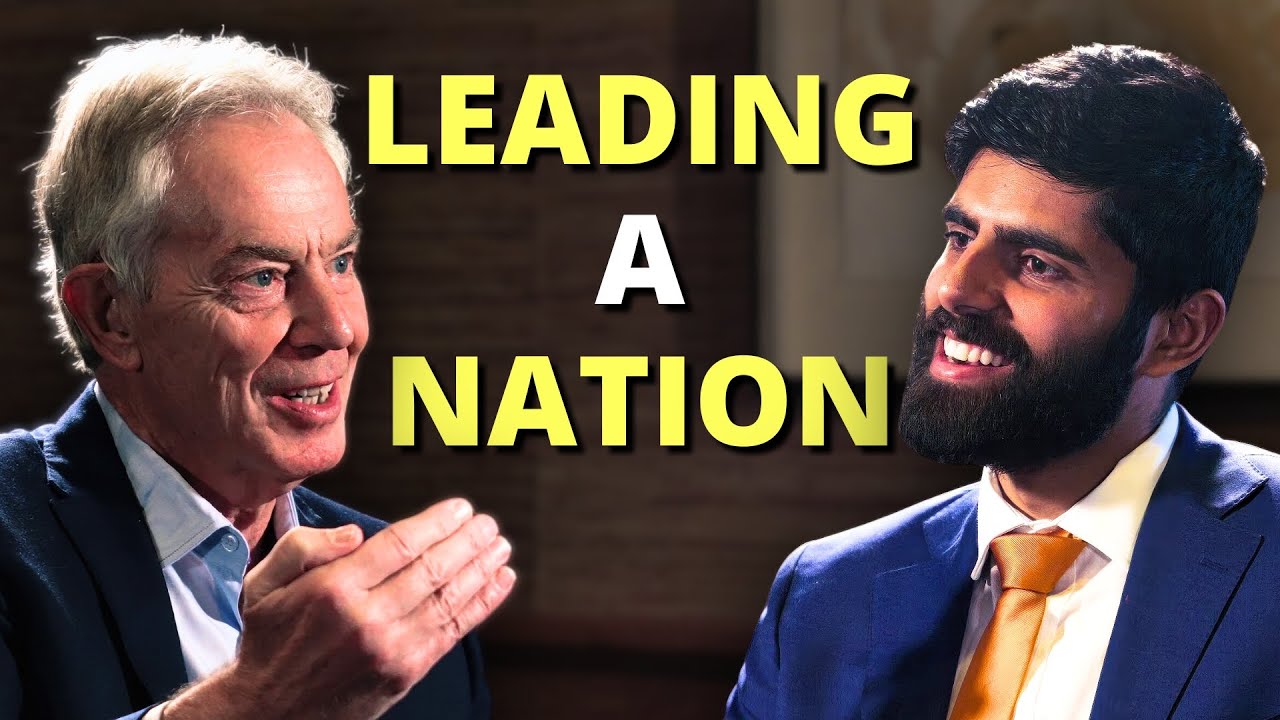In the video interview, former UK Prime Minister Tony Blair reflects on his time in office, emphasizing the challenges of political leadership and the importance of effective governance. Blair discusses the need for political leaders to possess both executive and political skills, addresses the impact of artificial intelligence on governments, and stresses the importance of adapting governance structures to leverage technology for positive change in a rapidly evolving global landscape.
In the video interview, former UK Prime Minister Tony Blair discusses his time in office and the challenges he faced as a political leader. Blair emphasizes the importance of transitioning from being a persuasive candidate to an effective chief executive once in office. He highlights the difficulties of governing, including managing the system’s resistance to change and the need to prioritize policy over politics. Blair also reflects on the constraints and complexities of political leadership, stressing the significance of having the right team and prioritizing good governance.
Blair discusses the need for political leaders to have both executive and political skills, emphasizing the importance of having a clear vision and effective decision-making abilities. He reflects on his own experiences in office and how, with hindsight, he could have been more assertive in making key decisions and managing his team. Blair also touches on the challenges faced by CEOs transitioning into political leadership roles, noting that political skills are essential for success in governing.
The conversation shifts to the topic of artificial intelligence (AI) and the potential challenges it poses for governments. Blair stresses the importance of political leaders understanding and addressing the AI revolution to navigate future crises effectively. He discusses the role of governments in regulating and harnessing AI technology, highlighting the need for policymakers to develop informed policies to address the risks and opportunities presented by AI.
Blair shares insights on governance and leadership, emphasizing the role of good governance in driving successful outcomes for countries. He discusses the impact of leadership on governance and institutions, pointing out that effective decision-making and prioritization are key factors in shaping a country’s trajectory. Blair also underscores the importance of adapting to the changing geopolitical landscape, particularly in relation to rising powers like China and India.
In conclusion, Blair emphasizes the need for political leaders to engage with the technological revolution, particularly in the areas of AI and digital transformation. He highlights the importance of adapting governance structures to leverage technology for positive change and urges leaders to focus on stable macroeconomic policies, fostering enterprise, upholding the rule of law, and investing in education to drive success in a rapidly evolving global landscape. Blair’s insights underscore the critical role of leadership in navigating complex challenges and driving progress in today’s interconnected world.
